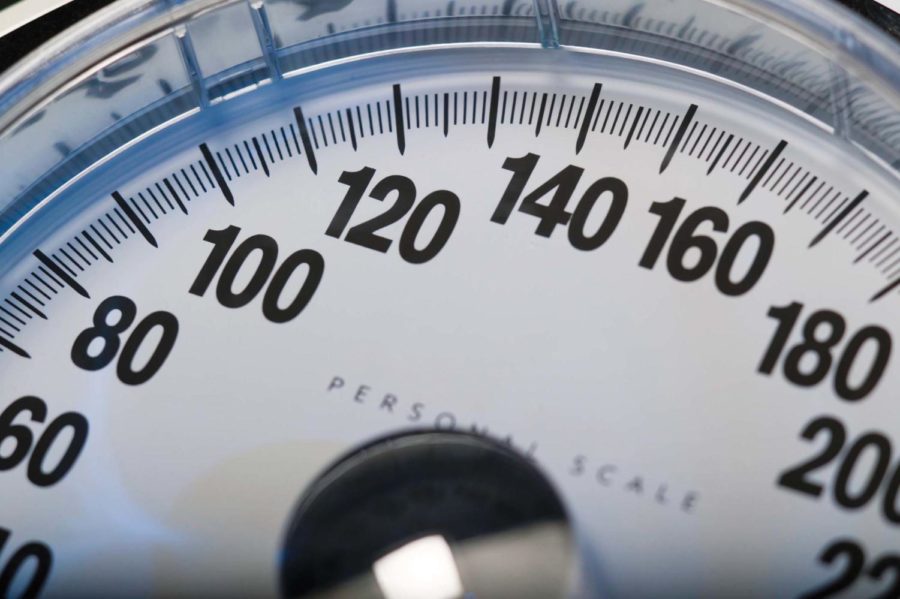Gross: Beauty vs. health: rethinking America’s obesity issue
Obesity rates in the United States are the highest in the world with 74.6 percent of Americans being overweight or obese. Overweight adolescents have a 70 percent chance of becoming overweight or obese adults.
January 12, 2013
When it comes to fitness, the United States seems a land of extremes. Americans are ridiculed by foreigners (and even by ourselves) for our appalling rotundity. Global statistics put the United States at the top of the list for national obesity, with nearly one-third of our population being grossly overweight. Especially here in the Midwest region, this is an extremely visible issue. Yet simultaneously, Americans are spending several millions of dollars each year on dieting and exercise. While some recklessly stuff themselves, others perpetually strive for a physical “perfection” that is always just out of reach. Whether people are starving themselves or overeating, it’s safe to say that weight is an enormous problem in the United States.
This is hardly a new topic, however. You can’t help but hear seemingly daily reports concerned with the overwhelming weight problem in America, countered by the hundreds of articles about the negative effect that popular culture and media have on individuals’ body image. Magazine pages are plastered with images of skeletal models, and ridiculously thin actresses parade around on our televisions. Are we too fat? Are we too skinny? No one seems to be able to agree.
The blame, however, does not fall completely on those models and actresses, but rather the attention paid to them by media.
You rarely see the toned, fit body of a professional athlete on the front cover of a magazine that caters to girls or women. Excluding the narrow time slot around the winter and summer Olympics, commercials and advertisements are ruled by the thin, smiling personages of Hollywood. And you will have a hard time finding a little girl who idolizes a scientist, an athlete, or a politician over one of various celebrities or pop stars. When people start dieting, their stated reasoning is often “to look good.”
It seems that very few do it to be well, healthier or live to be 100 years old. On the other hand, many people who are overweight justify it by saying that they no longer care how they look, or that appearances are unimportant to them. This prioritization is incorrect, and it is dangerous. Doesn’t it seem odd that more people are not alarmed by the ill health or shortened life longevity they bring upon themselves?
It is this obsession with image rather than health that is the root of the problem. As a society we have replaced the very real worry of health with anxiety over appearances and social standing. Potential heart disease seems to be less threatening nowadays than being “ugly.” Perhaps it is a sort of survival method; after all, it may be easier to accept that you are unattractive than that you are dying.
This view of obesity has to be changed. Our society views corpulence as repulsive or hideous instead of perilous or unhealthy. Because media is clouding our perception of what the United States’ obesity is really doing to us, we are lax when it comes to making the necessary changes. If emphasis could be taken away from attractiveness and put on a healthy lifestyle, people may come to see how important it is that they stay in good shape. The concerned voices of doctors and loved ones are drowned out by the repeating message in popular media of beauty and thinness. We may say we don’t care about being thin, but what we need to realize is that it is about health and wellness, not beauty.
Some small improvements can be seen. The diet and exercise industry is growing, and of course that industry promotes health along with attractiveness. However, more steps need to be taken to ensure that wellness takes its rightful place above social standing and beauty in our priorities. Perhaps what we need is further use of those idols that our society cherishes: the celebrities. If famous pop stars and actors could tell the public why they stay in shape, and what risks people take by “not caring,” maybe more people would listen.
Regardless of the method implemented, people need to be made to see that their health is of utmost importance. We need to somehow lose our focus on the apparently stunning and perfect lives of celebrities and focus on our own problem: that overeating and lack of exercise is killing our bodies, not just our social lives.







